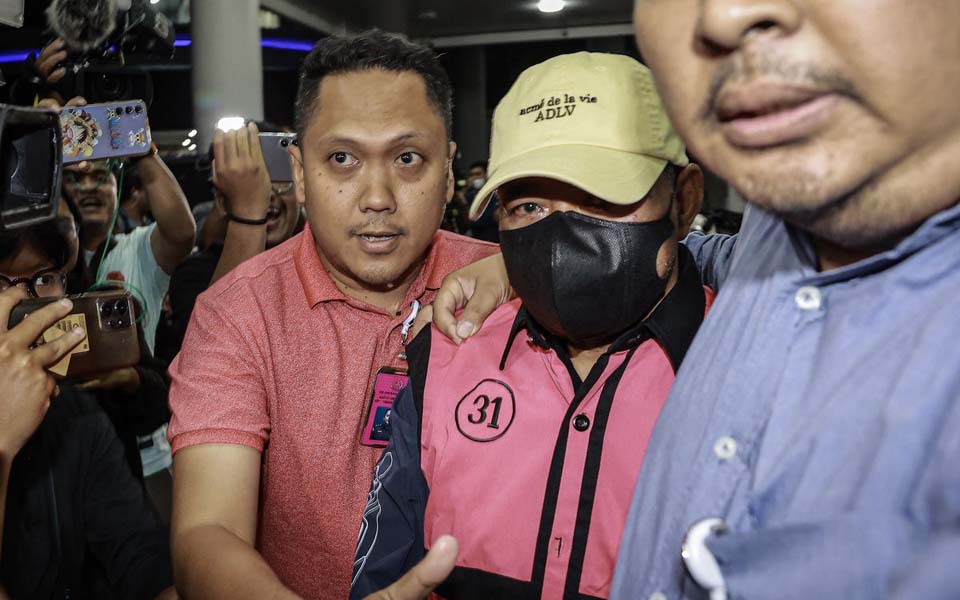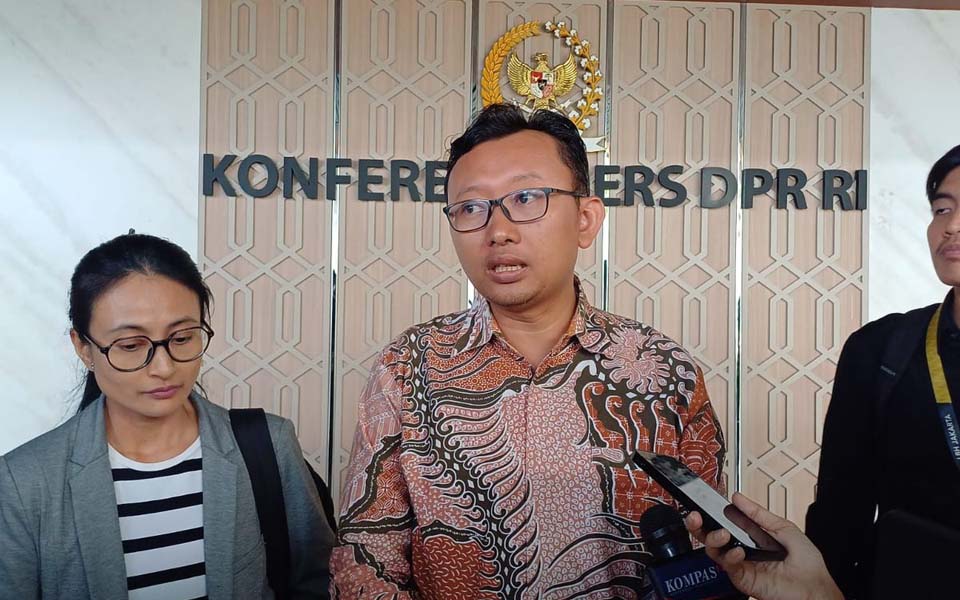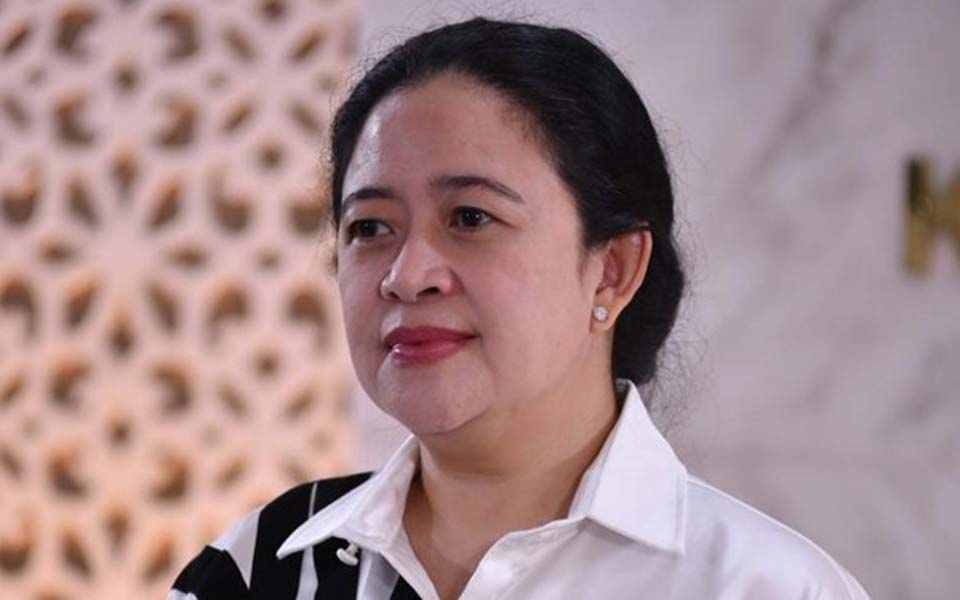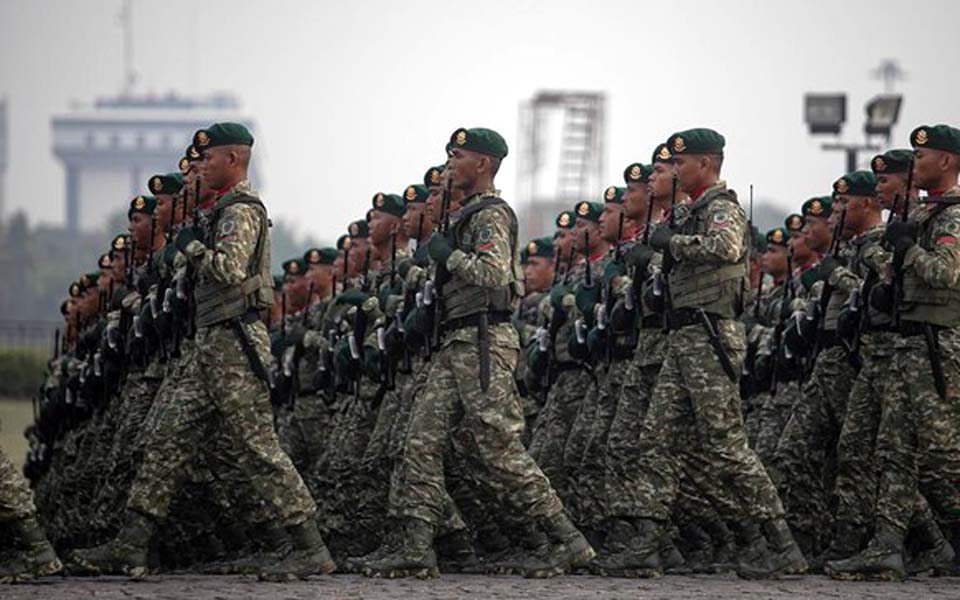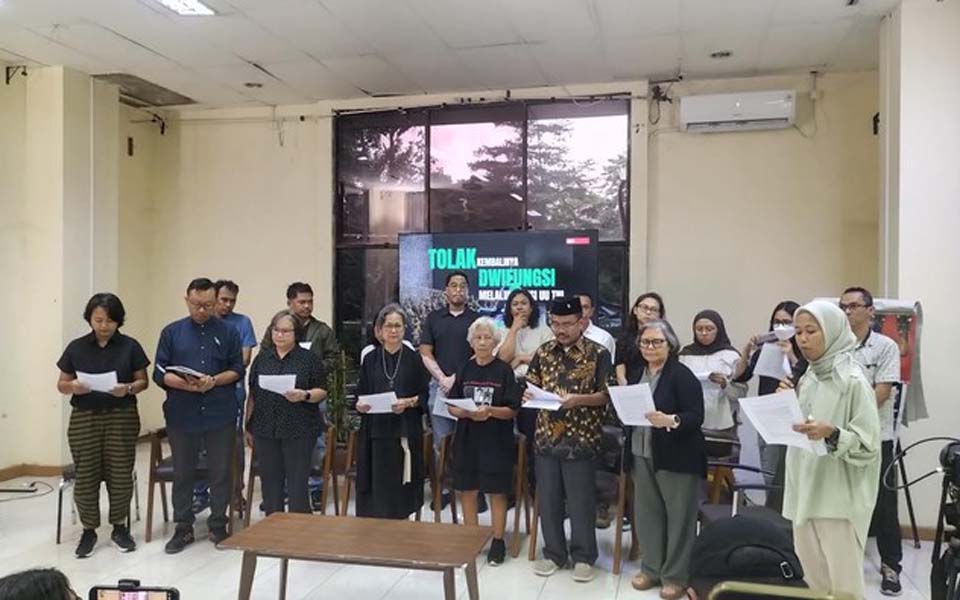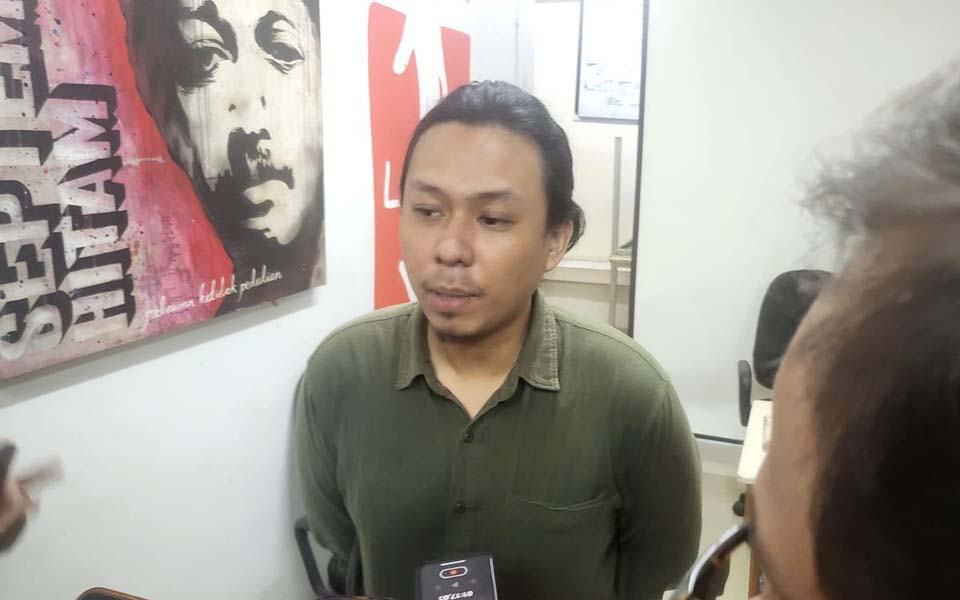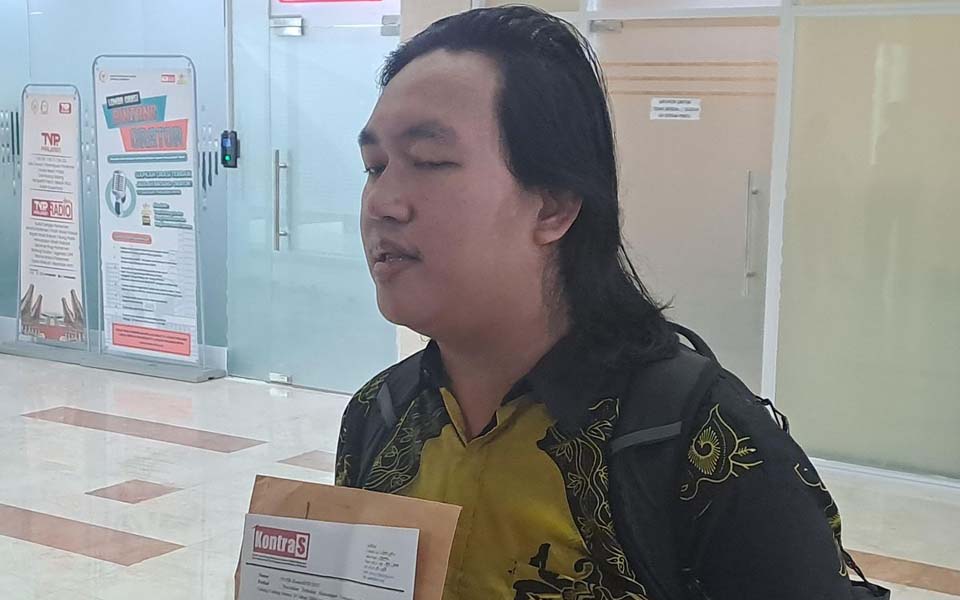Jakarta – The KUHP National Reform Alliance is demanding that the government and the House of Representatives not rush to ratify the Draft Criminal Code (RKUHP) at the next sitting of the parliament which is planned to be held on May 8.
Institute for Criminal Justice Reform (ICJR) researcher Maidina Rahmawati says that the RKUHP still has many problems that have yet to be resolved.
“The KUHP National Reform Alliance is demanding that the government and the DPR not rush the ratification of the RKUHP because the RKUHP still has many problems”, said Rahmawati during a discussion at the Kafe Bakoel Koffie in Jakarta on Sunday May 5.
Rahmawati said that based on the draft presented at the an open session of the DPR on May 28 last year and the government’s internal draft on July 9 last year, there are 18 unresolved problems with the RKUHP
Rahmawati explained that the first problem was that the government is yet to explain in detail the calculation of criminal punishments which it is claimed will be through a particular method. Second, the problem of legal regulations that reside in society which will create legal uncertainty.
“Third the problem of the death penalty which should be abolished”, she said.
Fourth, Rahmawati said that the RKUHP does not yet contain sufficient alternative punishments, yet these are needed to resolve the problem of overcrowding in jails.
Forth, she noted that the regulations on corporate crimes still overlap with articles in the RKUHP. Sixth, the stipulations on “maker” (treason, subversion, sedition) still refers to the original meaning of “an attack”.
“Seventh, the problem of criminalising the promotion of contraceptive devises which conflicts with policies on handling HIV/AIDS”, said Rahmawati.
The eighth problem, said Rahmawati, is that the RKUHP could allow for underage marriages because of the problematic articles criminalising all forms of sexual intercourse outside of marriage.
Ninth, she said that the criminalisation of abortion has yet to be brought into line with the exceptions included in the Health Law.
“Tenth, the problem of criminalisation of the crime of contempt of court which contains vague formulations with the potential of curbing freedom of opinion, including press freedom”, she said.
Eleventh, Rahmawati said there is a problem with the stipulations on defamation because in the RKUHP those who commit this crime are subject to jail sentences.
“Twelfth, the problem on the discourse on the criminalisation of same sex [relations] which will create stigma against people with a different sexual orientation”, said Rahmawati.
The other problems are related to the stipulations on rape which they sees as being a step backwards.
Aside from this, Rahmawati said that they have again found articles from the Dutch colonial era which are actually no longer relevant because they are undemocratic.
Several such articles were found such as the articles on insulting the president, the articles on insulting the legitimate government and the articles on insulting a legal entity.
“Fifteenth, the problem of the formulation on insulting religion which does not in fact guarantee the importance of people’s right to embrace and practice their religion”, said Rahmawati.
The sixteenth problem, said Rahmawati, is related to corruption where the articles on Corruption Courts in the RKUHP duplicating the Corruption Law.
Seventeenth, Rahmawati said that there are problems related to narcotics in the RKUHP. They feel that crimes related to narcotics should not be regulated under the RKUHP because they are a health issue.
“Finally, the problem of crimes of gross human rights violations which are still not in accordance with international human rights standards”, she said.
Transparency
Aside from postponing the ratification, Rahmawati said that they are asking the government and the DPR to be transparent in the deliberations of the RKUHP because up until now, she said, the public has not been notified about any of the developments in the RKUHP.
She said that the public needs to be informed of the crucial changes which are taking place in meetings between the government and the DPR. The public, she said, also needs to know exactly which parties are being involved in the deliberations on the RKUHP.
“Throughout session V, all deliberations on the RKUHP, both in the government as well as the government and the DPR, must be open to the public because the RKUHP regulates the broader aspects of social life which are related to the respect of human rights”, said Rahmawati. (jps/age)
[Translated by James Balowski. The original title of the article was “Banyak Masalah, RKUHP Diminta Tak Segera Disahkan”.]






